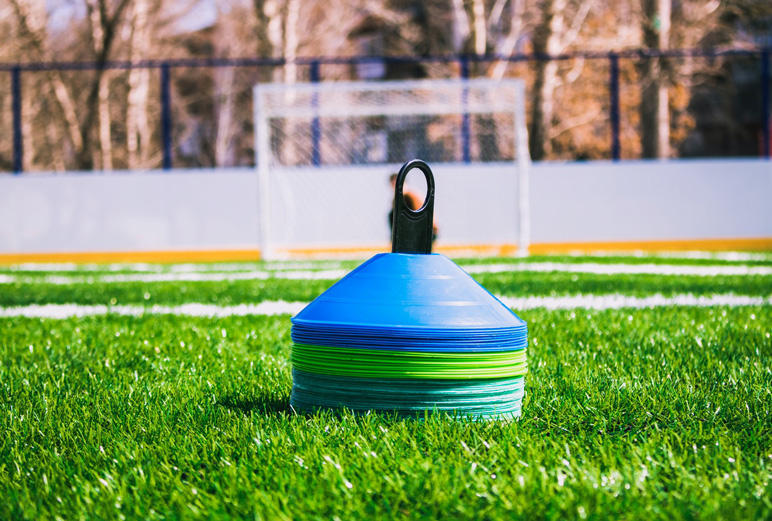To Cut, Or Not To Cut? That Is The Question
An ACL reconstruction is an elective surgery, and the decision to have ACL reconstructive surgery and carry out the associated post surgical ACL physio rehab program is not always a straight forward one. Without surgery there is often a spectrum of outcomes ranging from individuals who experience knee instability during simple daily activities, to those who can participate in sports without any symptoms of instability at all. Making the decision “to cut, or not to cut” can be a difficult one. At The Movement Centre our Randwick physio team over the years have helped hundreds of patients with ACL physio rehab both surgically and non-surgically. Our position is that the norm within this spectrum of outcomes following complete ACL tears, is that most individuals will function well with general life activities, but find they are unable to return to playing pivoting type sports due to instability, unless they have surgical reconstruction.
ACL Reconstruction, A Successful Solution To Instability
ACL reconstructive surgery is what could be considered a successful treatment approach. Most individuals undergoing an ACL reconstruction will have any symptomatic knee instability eliminated post surgically, coupled with a low complication rate it can be assessed as an appropriate solution to knee instability following ACL rupture. Yet not everyone who ruptures their ACL chooses to have reconstructive surgery, why???
An Extended ACL Physio Rehab Process
There is a growing trend in recent times for people to consider the non-surgical approach to ACL rupture management, opting for taking a conservative ACL physio rehab pathway. One of the biggest barriers I find when discussing with patients the pros and cons regarding undergoing an ACL reconstruction is the significant time post surgically involved in a return to play. Taking close to a year for patients to achieve their pre-injury functional levels. Following surgery, any ACL physio rehab program typically involves 9-12 months of treatment, accompanied with significant homework involving isolated exercises which over time are progressed to more sport specific training as things are ramped up, closer to their return to play point.
The Younger You Are, The More Likely You Are To Choose Surgery Over Non-Surgical ACL Physio Rehab
At our Randwick physio practice we find the trend is for younger more active adults to elect to have ACL reconstructive surgery. This is especially so if the individual is involved in high level sports that involve rapid changes of direction and pivoting. Surgery gives these athletes both a more subjectively and clinically stable knee, allowing them to perform the pivoting actions crucial in sports such as netball and the football codes. However, having previously said that it is generally our younger population that elect for surgery, it should be noted that there are a number of reasons why someone may, or may not elect surgery over a conservative non-surgical ACL physio rehab approach. And a patients required future activity type, and levels, not their age, should ultimately determine the role surgical intervention can play in someone’s return to sport.
Nonsurgical ACL Physio Management
Individuals not involved in, or unlikely to become involved activities involving a lot of pivoting, or rotational changes of direction may well decide not to undergo reconstruction surgery. However as previously mentioned there is a growing trend for some athletes to take the conservative ACL physio rehab approach after injury, in an attempt to restore function and performance levels, without going under the knife.
It must also be taken into account, that when someone tears their ACL often the ACL rupture is not the only injury they sustain. It is reported that approximately 50% of ACL ruptures occur in combination with damage to other knee tissue, such as the articular cartilage, the meniscus, bone bruising or other knee ligament damage. With this in mind both the amount, and nature of any “collateral damage” may have a bearing on the necessity for surgical intervention almost as much as the ACL rupture itself.
Possible candidates for successful nonsurgical ACL physio management include: * Patients living fairly sedentary lifestyles, not engaged in physically demanding work or sports. * Patients with partial tears to the ACL and no instability symptoms. * Patients with isolated complete ACL tears but without any symptoms of instability in low demand sports and they are willing to give up any high demand workload or sports.
Previous Injury Is A Strong Indicator Of Future Issues
It is important to note here that any patient suffering a torn ACL and significant functional instability, ultimately will have a higher risk of developing secondary knee issues at a later date. It is therefore important that that individual makes an informed choice regarding best management for them in their specific situation. As highlighted, there are a multitude of factors that can be considered when deciding “to cut, or not to cut?” Secondary damage may occur in patients as a result of repeated episodes of instability, due to the type and severity of any “collateral damage”, all exacerbated by returning to high demand work or sports activities after injury without appropriate guidance and care. At The Movement Centre our physiotherapy team are more than happy to sit down with you and discuss at length, the pros and cons relevant to your specific situation, and hopefully help you make both an informed and correct choice with regard to having surgery verses taking a non-surgical ACL physio rehab approach. When it comes to ACL tear rehab, our experienced Randwick physio team, coupled with our fantastic gym space, means we like to think we have you covered, which ever option you choose.



